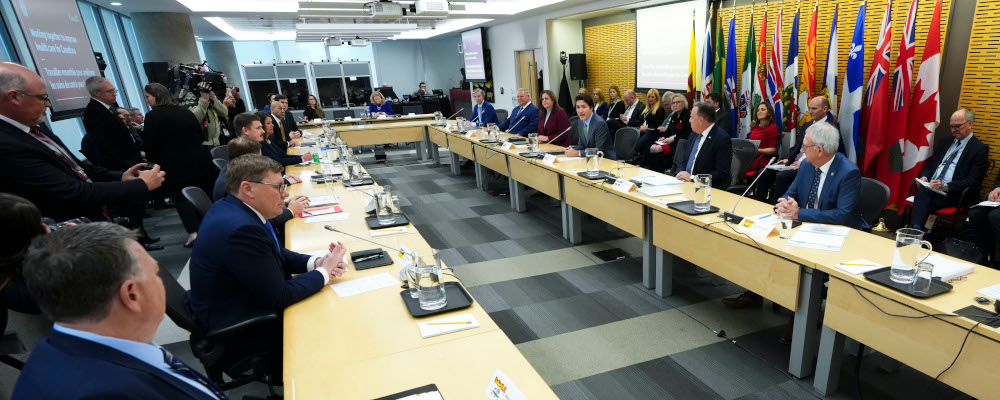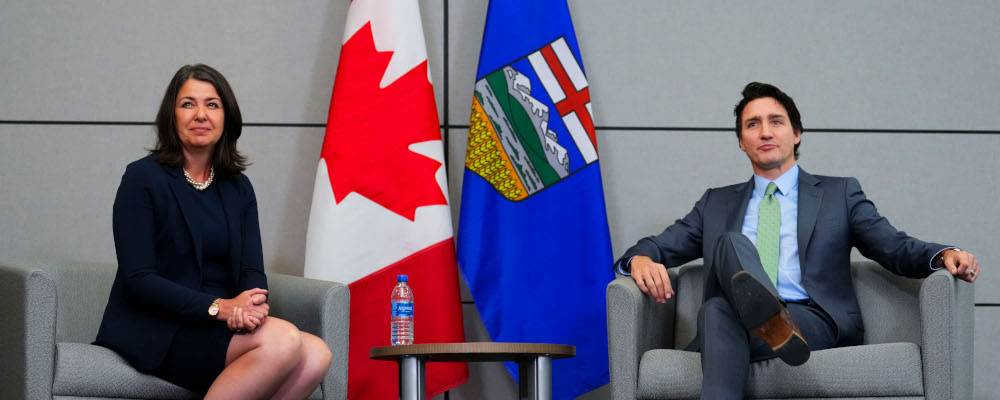Last week, the Supreme Court of Canada released a major decision, AG Canada v. AG Quebec, which found that the federal government’s exclusive jurisdiction over “Indians and lands reserved for the Indians” allows it to set national standards for Indigenous child welfare services that are binding on the provinces, even though the provinces have jurisdiction over child and family services through their constitutionally-guaranteed powers over “property and civil rights in the province” and “generally all Matters of a merely local or private Nature in the Province.”
The decision was a pragmatic compromise that stopped short of directly answering broader questions of whether and when the federal government can direct the provinces to implement federal laws. But the issue is bound to return to the Court in the coming years, particularly with initiatives in Alberta and Saskatchewan to carve out greater autonomy from the federal government.
Bill C-92, An Act Respecting First Nations, Inuit, and Métis Children, Youth, and Families, was a response to the commitments Canada bound itself to when it adopted the United Nations Declaration of the Rights of Indigenous Peoples (UNDRIP), which broadly calls for autonomy and self-determination for Indigenous Peoples, and calls for reconciliation between the Crown and First Nations, the Inuit, and Métis. It provides a framework for Indigenous Peoples to oversee their child welfare programs and explicitly declares itself to carry precedence over provincial laws.
Quebec referred the question of the Act’s constitutionality to the courts because despite supporting greater autonomy for Indigenous Peoples, it took issue with the federal government’s decision to direct the provinces about how to deliver child protection services where Indigenous children are involved and its declaration that Indigenous laws—even those not yet enacted—could be given the force of federal laws and made paramount over provincial laws. That would seem to represent a deviation from the division of powers between provincial and federal spheres of authority guaranteed in the Constitution, as well as from the general principles of mutual agreement and cooperation between two sovereign and co-equal levels of government.
The Canadian Constitution Foundation intervened to help preserve the principle that provinces cannot be compelled to administer federal laws or programs, which could be the next big frontier in the federalism wars. The court appears to have preserved that principle—at least for now.
The decision was deliberated upon for a lengthy 14 months and was authored by the Court rather than individual judges, both signals of extensive inter-chambers negotiations and a drive to arrive at consensus. The decision found that the federal law directing the provinces in this particular case was constitutional because the purpose of the law was squarely within federal jurisdiction and the impacts on the provincial public service were “incidental” or relatively minor.
We can expect the federal government to continue attempting to coerce the provinces into implementing federal laws under their power of legislating national standards.
This issue is bubbling up in provincial legislatures across the country, and will surely land in the courts again soon. When it comes to questions of how far the federal government can go in directing provinces to implement its laws, the elephant in the room is the Alberta Sovereignty Within a United Canada Act. The Act, tabled by Alberta premier Danielle Smith when she formed government in 2022, features a declaration that Alberta would decline to implement federal laws or programs that, in its view, unjustifiably impeded provincial jurisdiction or prejudiced the interests of Alberta.

Smith gave teeth to this declaration last November when she announced that Alberta would elect not to implement the federal government’s Clean Electricity Regulations, still in draft form, and instead would pursue its own clean-energy initiatives. Smith would seem to be on strong footing to do so, since s. 92(c) guarantees to the provinces control over the “development, conservation and management of sites and facilities in the province for the generation and production of electrical energy.”
This Act’s constitutionality has been the subject of controversy within the legal community. It has been pointed out in support of the Act’s constitutionality that the Supreme Court, while permitting inter-administrative delegation, has consistently emphasized that this delegation occurs on the basis of mutual consent and cooperation with the provinces. Alberta would decline to implement federal laws without disputing their constitutionality but instead require the federal government to implement its law on its own, with its own funds, instead of relying on the provinces to carry out its policies as it normally does.
This view of provincial autonomy within the federation isn’t just gaining traction in Alberta. Saskatchewan has acted similarly in its regulation of firearms, pushing back against the federal regulation of guns by requiring any federal agent that proposes to confiscate a gun in the province to be licensed by the Chief Firearms Officer of Saskatchewan, to provide fair compensation for seized weapons, and give the province wide scope in prosecuting non-violent firearms offences.
The Supreme Court’s ruling last week preserved the principle that provinces can’t be required to implement federal laws— but that won’t prevent a future government lawyer from trying to argue that the decision gives cover for Ottawa to attempt to ram through future laws and dispute the constitutionality of the Sovereignty Act or Saskatchewan’s firearms legislation. The courts ought to reject this. A robust federal structure allows for the provinces to act as laboratories of innovation and pursue different policy priorities in response to the vastly different economic and social conditions throughout the country.





